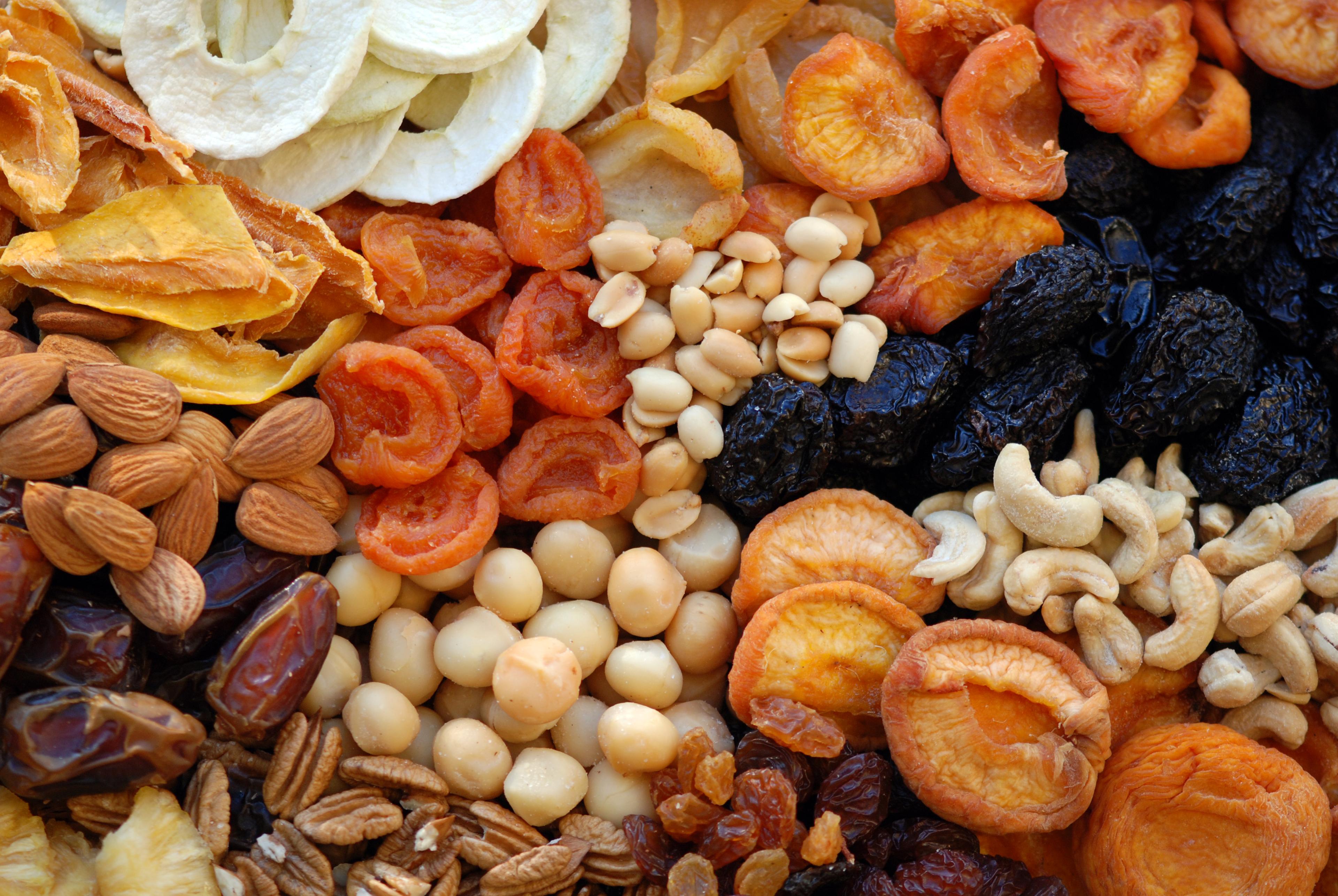Is Dried Fruit Healthy?

Isabella Cannon
| 4 min read

When it comes to convenient snacks, dried fruit has been a staple for centuries. Its naturally sweet flavor and impressive shelf life make it a go-to for busy lifestyles. While dried fruit has its benefits, there are some health considerations to keep in mind.
How is dried fruit made?
Dried fruit is simply fresh fruit that has had most of its water content removed. This process concentrates the fruit’s natural sugars, flavors and nutrients into a smaller package.
There are several methods for drying fruit:
- Sun drying: One of the oldest methods involves laying fruit in the sun and turning it regularly to allow moisture to evaporate.
- Oven drying: A quicker method, although there’s a risk of burning the fruit if not monitored carefully.
- Dehydrators: Modern food dehydrators speed up the process, offering consistent results with minimal guesswork.
- Freeze-dried: A low temperature dehydration process that involves freezing the fruit and lowering pressure, thereby removing the ice by sublimation. These generally have no sugar added.
Is dried fruit good for you?
Dried fruit offers many of the same benefits as fresh fruit:
- High in fiber: Helps support digestion and promote regular bowel movements.
- Antioxidant-rich: Dried fruits like cranberries, raisins and dates provide plant compounds that help fight oxidative stress. They contain plant phenols, which can help reduce inflammation in the body and promote digestion, according to Harvard Health.
- Rich in micronutrients: Supplies important vitamins and minerals, commonly including:
- Vitamin A
- Vitamin C (though some loss can occur during drying)
- Calcium
- Iron
- Potassium
Dried fruit consumption may contribute to higher-quality diets and greater intakes of under consumed nutrients like fiber and potassium, according to one study.
Drawbacks of dried fruit
While dried fruit is a good option, there are downsides to choosing dried fruit over fresh fruit such as:
- The drying process in most methods concentrates sugar, making dried fruits much higher in sugar and calories per ounce compared to fresh fruits. For example, 100 grams of fresh apple contains 10 grams of sugar, while 100 grams of dried apple contains 57 grams, according to Harvard Health.
- Some commercially dried fruits have added sugar to enhance flavor. Always check the ingredients list for "added sugars" when purchasing.
- It's easy to overeat dried fruit due to its small size and intense sweetness. As a rule of thumb, aim to eat half as much dried fruit as you would fresh. So, if you'd normally eat one cup of fresh grapes, stick to about 1/2 cup of unsweetened raisins.
Potential health effects of dried fruit
Health conditions
Clinical evidence regarding dried fruit's effects on heart health and blood sugar control is mixed. Some studies suggest dried fruit consumption may decrease the risk of cardiovascular disease, Type 2 diabetes or obesity, although more research is needed.
Bone health
Research indicates that prunes may help preserve bone mineral density in postmenopausal women, offering a unique benefit among dried fruits.
Cancer prevention
While evidence is still emerging, one study found a connection between dried fruit consumption and lower cancer risk. Nuts and dried fruits may contribute to reduced risks for specific cancers like colon, lung and pancreatic cancers. However, more research is needed to draw firm conclusions.
Tips for eating dried fruit
When adding dried fruit to your diet, keep these tips in mind:
- Choose unsweetened varieties to avoid unnecessary added sugars.
- Watch portion sizes to keep sugar and calorie intake in check.
- Pair dried fruit with protein, like nuts or yogurt, to create more balanced snacks.
- Use dried fruit as a garnish rather than the main ingredient—think a sprinkle on salads or a few pieces mixed into oatmeal.
Dried fruit can be a healthy addition to your diet when enjoyed in moderation. It’s packed with fiber, vitamins, minerals and antioxidants, offering many of the same health benefits as fresh fruit. According to one research study, freeze-dried dried fruits have proved to be nutritional snacks comparable to fresh fruits, with a smaller serving size, and could be incorporated in the fresh fruit recommendations.
However, because of some methods concentrated sugar and calorie content, most dried fruit is best treated as a special treat or a flavorful addition to meals rather than a snack to eat by the handful. Choosing minimally processed dried fruits without added sugars and keeping portions reasonable can help you enjoy the best of what dried fruit has to offer without overdoing it.
Photo credit: Getty Images
Related:





